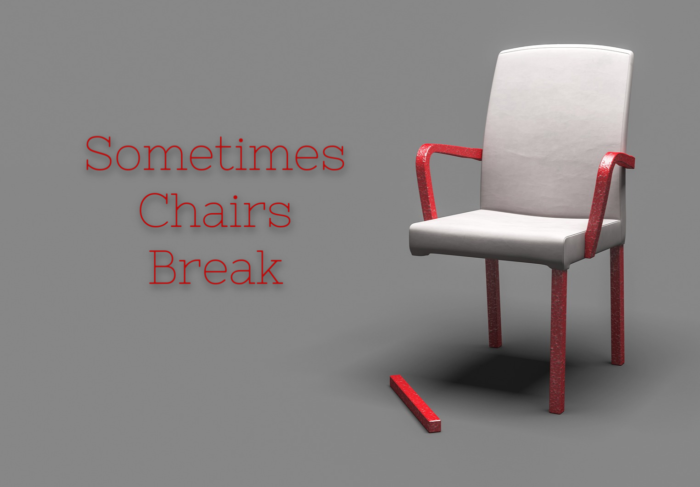Bill Johnson and Bethel: A Biblical Evaluation
The following is written by my oldest daughter, Jess, who is currently taking the time to do some in-depth research of popular false teachers. She compares what they teach to what the Bible says. This not only helps us understand just why they are considered a false teacher but also gives us a bit of knowledge when we are asked by fellow Christians about some of these teachers.
Today’s focus is on Bill Johnson, whom you may better know by the name of his ministry: Bethel. Jesus Culture Music and many other things stem from Bethel. Many of the worship songs sung in your churches are from Bethel. Let’s find out just what Bill and his ministry teach about God–
PART 1: Bill Johnson could be called the modern day father of the NAR (New Apostolic Reformation) movement. He is the lead pastor of Bethel Church and founder of the Bethel School of Supernatural Ministry. Bethel has also created their own music label, mission organization, and an “apostolic network” that includes hundreds of churches and schools all around the world. Jesus Culture is another popular movement that has emerged from Bethel.
I think most of the people reading this would agree that Bethel is, at the very least, a little weird. Their “manifestations of the power of the Spirit” include things like grave sucking, prophetic cards, prophetic dancing, waking angels, wearing “destiny pants”, fire tunnels, and holy laughter. Since we can’t find even one of those “manifestations” in the Bible, that list alone should be a clear enough warning to stay far away. But my goal today isn’t to dive into that aspect of Bethel. Videos and articles abound online if you want to research that on your own.
My goal is to give you a succinct overview of the heresies that are taught by Bill Johnson. It isn’t enough to simply say “they do weird things”. Their movement is a big one. Bill Johnson has said the main goal of Bethel is to “export their teaching” in music, conferences, books, sermons, schools, churches, livestreams, social media, and missions. They want to transform the church and the culture. We need to know why and how the teachings at Bethel contradict Scripture so we can warn others to avoid anything associated with them.
Today we will look at the 3 main tenants of Bill Johnson’s theology that should concern us. In Part 2 (see below), we’ll see just how these theologies manifest themselves so dangerously in application and practice at Bethel’s churches and schools.
First, he teaches the theology of dominionism. He believes they are ushering in the kingdom of God or “heaven on earth.” They teach about a “7 mountain mandate” where each mountain represents a kingdom they need to take dominion over such as government, education, and media. How do they do that? By bringing revival. No, not by sharing the gospel but by bringing healing, eradicating poverty, reforming society, and undoing the works of the devil. He fails to see the only source of true revival: the truth of the gospel piercing and transforming the hearts of individuals. He ignores all passages about the last days being evil, the great falling away, judgement, and the way of Christ being narrow and unpopular.
Second, he teaches that we live in a second apostolic age. There are apostles on earth now that are equal to the apostles in Scripture that began the church and witnessed the life of Jesus. Bill Johnson claims to be one of them. They cannot be questioned and receive direct revelation, therefore he elevates his teachings to that of the apostle’s teaching in the Bible. He completely and totally denies the sufficiency of Scripture.
And finally, he teaches false theology about the person of Jesus Christ:
“He performed miracles, wonders, and signs as a man in a right relationship to God…not as God. If he performed miracles because He was God, then they would be unattainable for us. But if he performed them as a man, I am responsible to purse His lifestyle.” This is just one example of many of him teaching that Jesus emptied Himself of divinity when He came to earth. This is a massive heresy. Colossians 2:9 says “For in Him, the whole fullness of of deity dwells bodily” and if He was not God then His sacrifice on the cross would not have been a sufficient payment for our sins.
“Jesus bore stripes in His body through brutal beating as an atoning work to deal with the power of sickness and disease. Lord we give You thanks that You were willing to suffer the way you did to dis-empower disease, infirmity, and afflicting spirits” Bill teaches that Jesus Christ’s death on the cross gives us power over all sickness and disease. See 1 Peter 2:24, 1 John 3:5, and 1 Corinthians 15:3 to see why this is also heresy.
“God is in charge but not in control. He has left us in control.” Proverbs 19:1 and 21:1 are just two among many verses that refute that statement. He is absolutely in control of the entire universe including our lives.
He says that his “standard is Jesus” and that any interpretation of Scripture that doesn’t meet that standard is “theologically immoral”. There are “superior truths and inferior truths” such as ‘the judgement of God is true, the mercy of God is more true” and “anything you know about the nature of God that isn’t seen in the person of Jesus is an inferior truth”. 2 Timothy 3:16, John 17:17, and Psalm 119:160 are just a few among many verses that remind us that ALL Scripture is equally true. There are no inferior truths in Scripture.
We’ve only scratched the tip of the iceberg, friends. Let’s remember that the three main problematic theologies of the Bethel movement are Dominionism, belief in a second apostolic age, and a warped idea of who Jesus is and why He came to earth. There are more but these are enough for now. It’s time to turn our attention to how these unbiblical ideas manifest themselves in practical belief and practice.
First, they believe in healing. They do not simply believe that God can still perform miracles of healing today. Of course He does, if it’s in accordance with His will. And there are, as most of us know, denominations that believe that people still have gifts like speaking in tongues and healing today. (I personally do not, but that’s a topic for another day!) But this isn’t what Bethel believes either. They take it much further than that. They believe that healing is central to the gospel. That Jesus died to heal everyone of their physical pain, sickness, and poverty here on earth.
Bill Johnson preached a sermon on Galatians 2 where Paul tells the church that anyone who preaches a different gospel is accursed. Bill goes on to say that anyone who preaches a gospel that doesn’t include physical healing is preaching a different gospel and is therefore accursed. “I refuse to create a theology that allows for sickness” he tells the audience. He believes if something exists in heaven, it should exist on earth. So because there’s no sickness, pain, or poverty in heaven, that is what we can expect on earth. “We’re coming into a day where the presence of the Lord is so pronounced that everyone walking into the building will be healed…[it will be] a sustained reality in the church” he said recently in an interview.
Let’s just quickly go over a few of the many errors with this type of belief. First, there’s no death in heaven, right? So if we could truly bring heaven to earth, then we also should be able to eliminate death. Something Bethel has yet to accomplish or even mention. Secondly, he totally ignores passage after passage in the Bible that talks about death, suffering, and trials. About eternity being our only hope for freedom from sickness, death, and sin. The verse in Matthew 26:11 where Jesus says “the poor will always be with you.” Someone asked him about the book of Job and he simply replied “Scripture can’t correct my understanding of Jesus.” Excuse me? What he’s really saying is “Scripture can’t correct my understanding of the idol I have created and call Jesus.”
Finally, this belief says that if you aren’t healed, then you don’t have enough faith. I have read testimony after testimony of men and women that have left this movement after they had very real physical pain or sickness that wasn’t being healed. They were only told over and over that they lacked faith. Even Bethel has classes entitled “keeping your healing” since apparently often people think they were “healed” during a meeting only to see their physical problem return. Scripture is clear: faith is never measured by whether we are healthy or sick, poor or rich. True faith, according to Hebrews 11, is trusting and obeying the Word of God even when we can’t see.
Second, they believe in a very heretical type of prophesy. Bethel’s students are encouraged to “say anything” and soon they will be prophesying. Bill asked a group to tell him something they thought Jesus would say if He was sitting in the room with them. After each student answered, he applauded them for their prophesies. Their only qualification for prophesy is that it must be edifying and encouraging. They can’t say anything negative. (nevermind that there are plenty of negative prophesies in the pages of Scripture) Their head prophet, Kris Vallatton, boasts that about 80% of their prophesy is wrong and 20% is right. They conveniently ignore the passages where God says that no true prophet is ever wrong. Their version of prophesy sounds very similar to Jeremiah 23:16: “Do not listen to what the prophets are prophesying to you; they fill you with false hopes. They speak visions from their own minds, not from the mouth of the LORD.”
Third and finally, they blaspheme the Holy Spirit. Their websites states that the “The Holy Spirit gives every believer the supernatural power to witness and release miracles, signs, and wonders.” These signs and wonders include things like holy laughter, grave sucking, communicating with angels, convulsing, and seeing the presence of God at their services in gold dust, holy clouds, and falling feathers. No scripture exists that tells us the Holy Spirit gives us supernatural power to “witness and release” signs and wonders or anything even slightly similar.
I could go on and on about how Bill thinks people can’t believe the gospel without signs and wonders. About fake, manipulated healing and “supernatural” events. About the way they treat people who aren’t healed and question their theology. About the demonic influence in their strange practices. About how Bill tells people to claim the promise of financial blessing. About how students left someone injured lie at the bottom of a cliff for hours while they tried to pray for his healing instead of call for help. We’ve only scratched the surface.
But the bottom line is this: Bill Johnson has created a counterfeit faith that is based on feelings and self instead of Scripture. This faith is all about what God can do for them. They tell God what they think is best instead of the other way around. This faith says that signs and wonders are how God manifests His love towards us instead of the cross. It creates an idol out of the Jesus they want instead of the Jesus that is revealed in Scripture. Bill Johnson purposefully manipulates and tricks and destroys. He picks and chooses which passages of the Bible he likes and twists them to say what he wants. He blasphemes the Holy Spirit. This faith he preaches, without a doubt, denies the truth of the gospel. And so, in conclusion, I recommend we all stay far away from him and his “faith.”
______________________________________
PART 2: In Part 1, I went over the 3 main problematic theologies of the Bethel movement – dominionism, belief in a second apostolic age, and a warped idea of who Jesus is and why He came to earth. Today we will look at how these ideas manifest themselves in practical belief and practice.
First, they believe in healing. They do not simply believe that God can still perform miracles of healing today. Of course He does, if it’s in accordance with His will. And there are, as most of us know, denominations that believe that people still have gifts like speaking in tongues and healing today. (I personally do not, but that’s a topic for another day!) But this isn’t what Bethel believes either. They take it much further than that. They believe that healing is central to the gospel. That Jesus died to heal everyone of their physical pain, sickness, and poverty here on earth.
Bill Johnson preached a sermon on Galatians 2 where Paul tells the church that anyone who preaches a different gospel is accursed. Bill goes on to say that anyone who preaches a gospel that doesn’t include physical healing is preaching a different gospel and is therefore accursed. “I refuse to create a theology that allows for sickness” he tells the audience. He believes if something exists in heaven, it should exist on earth. So because there’s no sickness, pain, or poverty in heaven, that is what we can expect on earth. “We’re coming into a day where the presence of the Lord is so pronounced that everyone walking into the building will be healed…[it will be] a sustained reality in the church” he said recently in an interview.
Let’s just quickly go over a few of the many errors with this type of belief. First, there’s no death in heaven, right? So if we could truly bring heaven to earth, then we also should be able to eliminate death. Something Bethel has yet to accomplish or even mention. Secondly, he totally ignores passage after passage in the Bible that talks about death, suffering, and trials. About eternity being our only hope for freedom from sickness, death, and sin. The verse in Matthew 26:11 where Jesus says “the poor will always be with you.” Someone asked him about the book of Job and he simply replied “Scripture can’t correct my understanding of Jesus.” Excuse me? What he’s really saying is “Scripture can’t correct my understanding of the idol I have created and call Jesus.”
Finally, this belief says that if you aren’t healed, then you don’t have enough faith. I have read testimony after testimony of men and women that have left this movement after they had very real physical pain or sickness that wasn’t being healed. They were only told over and over that they lacked faith. Even Bethel has classes entitled “keeping your healing” since apparently often people think they were “healed” during a meeting only to see their physical problem return. Scripture is clear: faith is never measured by whether we are healthy or sick, poor or rich. True faith, according to Hebrews 11, is trusting and obeying the Word of God even when we can’t see.
Second, they believe in a very heretical type of prophesy. Bethel’s students are encouraged to “say anything” and soon they will be prophesying. Bill asked a group to tell him something they thought Jesus would say if He was sitting in the room with them. After each student answered, he applauded them for their prophesies. Their only qualification for prophesy is that it must be edifying and encouraging. They can’t say anything negative. (never mind that there are plenty of negative prophesies in the pages of Scripture) Their head prophet, Kris Vallatton, boasts that about 80% of their prophesy is wrong and 20% is right. They conveniently ignore the passages where God says that no true prophet is ever wrong. Their version of prophesy sounds very similar to Jeremiah 23:16: “Do not listen to what the prophets are prophesying to you; they fill you with false hopes. They speak visions from their own minds, not from the mouth of the LORD.”
Third and finally, they blaspheme the Holy Spirit. Their websites states that the “The Holy Spirit gives every believer the supernatural power to witness and release miracles, signs, and wonders.” These signs and wonders include things like holy laughter, grave sucking, communicating with angels, convulsing, and seeing the presence of God at their services in gold dust, holy clouds, and falling feathers. No scripture exists that tells us the Holy Spirit gives us supernatural power to “witness and release” signs and wonders or anything even slightly similar.
I could go on and on about how Bill thinks people can’t believe the gospel without signs and wonders. About fake, manipulated healing and “supernatural” events. About the way they treat people who aren’t healed and question their theology. About the demonic influence in their strange practices. About how Bill tells people to claim the promise of financial blessing. About how students left someone injured lie at the bottom of a cliff for hours while they tried to pray for his healing instead of call for help. We’ve only scratched the surface.
But the bottom line is this: Bill Johnson has created a counterfeit faith that is based on feelings and self instead of Scripture. This faith is all about what God can do for them. They tell God what they think is best instead of the other way around. This faith says that signs and wonders are how God manifests His love towards us instead of the cross. It creates an idol out of the Jesus they want instead of the Jesus that is revealed in Scripture. Bill Johnson purposefully manipulates and tricks and destroys. He picks and chooses which passages of the Bible he likes and twists them to say what he wants. He blasphemes the Holy Spirit. This faith he preaches, without a doubt, denies the truth of the gospel. And so, in conclusion, I recommend we all stay far away from him and his “faith.”
Please note: You can follow Jess on Instagram at anchor.for.the.soul and on Facebook at An Anchor for the Soul










